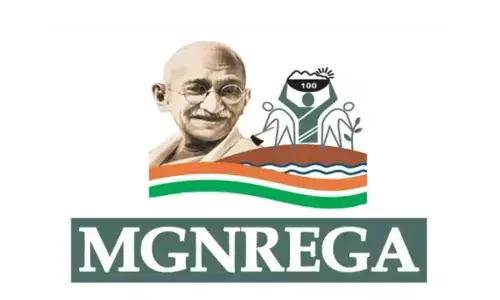Why not common syllabus throughout country?

It is, indeed, unfortunate to say the least, that the apex court has turned a deaf ear to a plea for the common syllabus and curriculum for all children between the age of 6 and 14 years in the country by establishing a ‘One Nation, One Education Board.’ What is more disturbing is the casual manner in which the whole serious issue was dealt with for the reasons not palpable to a common man.
It is, indeed, unfortunate to say the least, that the apex court has turned a deaf ear to a plea for the common syllabus and curriculum for all children between the age of 6 and 14 years in the country by establishing a ‘One Nation, One Education Board.’ What is more disturbing is the casual manner in which the whole serious issue was dealt with for the reasons not palpable to a common man.
Recently, the honourable Supreme Court dismissed the plea of an assistant primary teacher of Ghaziabad by observing that the education boards of the Centre and the States and the schools affiliated thereto are entitled to the liberty to determine the contents of the subject they wish to teach and the education they wish to impart to their students. The autonomy to anybody can never be absolute or unbridled.
This is a settled rule. The autonomous bodies are duty- bound to follow all reasonable directions from the government. If they ignore or exceed their brief granted under a statue or the rules made thereunder, then they are accountable to the government, courts and the people at large.
The apex court ought to have seen that taking shelter under the autonomy many a State Education Boards are teaching twisted or untrue history or encouraging divisive tendencies in the tender minds.
In fact, the writ petition had not asked for the moon. The petition rightly stated that “In expounding the Constitution to meet the requirements of Articles 21 A read with Articles 14,15,16, 38 (2), 39 (f), 46 & 51 A, measures such as a common education system viz. common syllabus and common curriculum is a necessity. It would enable every child to be placed on a level playing field for the challenges of the future and meaningfully contribute in achieving the great golden goals as set out in the Preamble.”
The apex court has all the powers to set right the things which hinder the Nation’s march towards achieving the Constitutional goals. The apex court in the past also has on several occasions risen to the challenges thrown by adverse circumstances.
This is the right time to go deep into the root cause for the rising anti-national tendencies, particularly among youth in the name of ‘Azadi’ or ‘Freedom.’ It is high time that the highest court of the country took the clarion call and rose to the occasion by suo motu reconsidering the whole matter in a wider perspective.
Adultery law challenged
The lopsided archaic law propounded under Section 497 of the Indian Penal Code (IPC) has been the subject matter of a writ petition filed in the Supreme Court.
A three-judge bench headed by the Chief Justice on December 8 admitted the writ petition filed as PIL by one Joseph Shine and issued notice to the Union of India. The said petition has challenged the validity of Section 497 of the IPC, in so far as the impugned section extends immunity to women from prosecution for the offence of adultery, even as an abettor, under the garb of Article 15 (3) of the Constitution.
It is contended, inter alia, by the petitioner that the law in the present shape is discriminatory as “a woman can neither be a complainant under the impugned section, nor can she attract liability as either an adulteress or an abettor. It is a convoluted provision that requires deliberation.”
The bench, in turn, observed, “Prima facie, we find section 497 gives relief to the woman, though the offence of adultery is committed by both the man and woman only one party is held liable for the criminal offence. It remains to be seen if the conferment of affirmative rights on the woman can go to the extent of treating her as a victim to the peril of the husband.”
Saying, “ ..Ordinarily, the criminal law proceeds on gender neutrality but in this provision, as we perceive, the said concept is absent ” the apex court observed, “..A time has come when the society must realise that a woman is equal to a man in every field.
This provision, prima facie, appears to be quite archaic. When the society progresses, and the rights are conferred, the new generation of thoughts spring, and that is why, we are inclined to issue notice.”
True, in these days of ‘openness’ there has been a phenomenal increase in promiscuity among both men and women. Pre-marital sex and post-marital sex is practised unfettered. Consequently, the very institution of marriage has suffered a crippling blow.
Added to this, women-centric laws under the guise of anti-dowry provision (Section 498 A in IPC), Domestic Violence Act, liberal Family Act etc; tilt heavily towards women, including those indulging in adultery. Some of such women of low virtue do not hesitate to dump on their ‘husbands’ children begot out of extra-marital affairs. Poor husband in such a piquant situation has no other alternative but to suffer in silence.
Therefore, it is in the right earnest that Section 497 of IPC is struck down as being discriminatory and unconstitutional. In its place, the Parliament should bring an amendment to the IPC declaring Section 497 as an offence punishable with seven years of imprisonment and fine and be made applicable to both, husband as well as wife. Further, adultery on either part should be made a ground for seeking divorce.
The DNA profiling to ascertain one’s parentage should be declared a fundamental right. Indeed, such stringent measures are necessary in order to ward off the impending dangers of ‘free sex’ including the most dreaded disease called, AIDS.
Rule of law convention
The annually held Rule of Law Convention will be hosted in New Delhi by the Bar Association of India (BAI) next year on February 10 and 11. This annual event is largely attended by the Bar leaders from all over the country.
By Dr H C Upadhyay














